Introduction to
Project Seminar in English
October 3, 2018
Masa Kudamatsu
Second-year undergraduate course
Department of International Public Policy
Osaka University
Press SPACE to proceed
To go back to the previous slide, press SHIFT+SPACE
Improve your oral communication skills in English
This course in one slide
Aim
How
Practice 5-minute presentations
Fail gracefully
and...
Speak in English only
three times
At the end of the day...
90 minutes a week for 15 times won't help you much
This course at least tries to
change your attitude
To improve your listening skill...
Only English is allowed in this course
Get used to being unable to understand everything
At the end of the day...
90 minutes a week for 15 times won't help you much
This course at least tries to
change your attitude
To improve your speaking skill
You're encouraged to make mistakes in this course
Get eager to communicate without worrying about making mistakes
Improve your oral communication skills in English
This course in one slide
Aim
How
Practice 5-minute presentations three times
Fail gracefully
and...
Speak in English only
But for what purpose?
Improve your oral communication skills in English
This course in one slide
Aim
3 benefits from improving
oral communication skills
in English
Come up with your own while listening
You will shortly be asked to discuss with your classmates
and my self-introduction
1
Work abroad / Earn higher wage
I studied in London, doing my PhD in economics
Self-introduction #1
Initially I didn't understand my European classmates
I made a lot of effort improving my English
Speech shadowing helped me a lot
Self-introduction #1 (cont.)
Thanks to my (not-too-bad) oral communication skills in English...
A higher salary
A much better research environment
I landed a job at Stockholm University in Sweden
Combination of English with special skills
is the key for higher salary
, not in Japan
2
More sources of information
I dance bachata
Top dancers are mostly from Spain
Self-introduction #2
Those top dancers sometimes come to Japan,
holding workshops in (not-so-good) English
I can understand what they say during the lesson
I can ask them questions if their instruction is not clear enough
Self-introduction #2 (cont.)
English helps you expand possibilities in your private life
3
What else?
Ice-breaking Time
Ice-breaking Time
Form a pair
Tell to your partner:
Other benefits from oral communication skills in English
Other examples of the two benefits Masa just talked about
or
Everyone will be asked to explain
what your partner, not you, said to the entire class
Ice-breaking Time
Form a pair
Tell to your partner:
Other benefits from oral communication skills in English
Other examples of the two benefits Masa just talked about
or
Fail gracefully
Don't forget to
Improve your oral communication skills in English
This course in one slide
Aim
How
Practice 5-minute presentations three times
Fail gracefully
and...
Speak in English only.
In daily life, you're allowed to talk
without interruption for at most 5 minutes
Why 5 minutes?
You can rehearse your presentation many times
if it's only 5 minutes long.
The audience have a lot of time to speak up afterwards
How much can you talk within 5 minutes?
Steve Jobs on the day of launching iPhone, back in 2007
How much can you talk within 5 minutes?
How many things about iPhone
did Jobs manage to mention
within five minutes?
Jobs talked about as many as 3 things about iPhone
Revolutionary to change the world
Combination of iPod, cell phone, and internet browser
Smarter and easier to use than other "smart" phones
How much can you talk within 5 minutes?
Each of you will give a 5-minute talk three times during the course
The first two won't count for your grade
Aim to make mistakes!
Fail gracefully
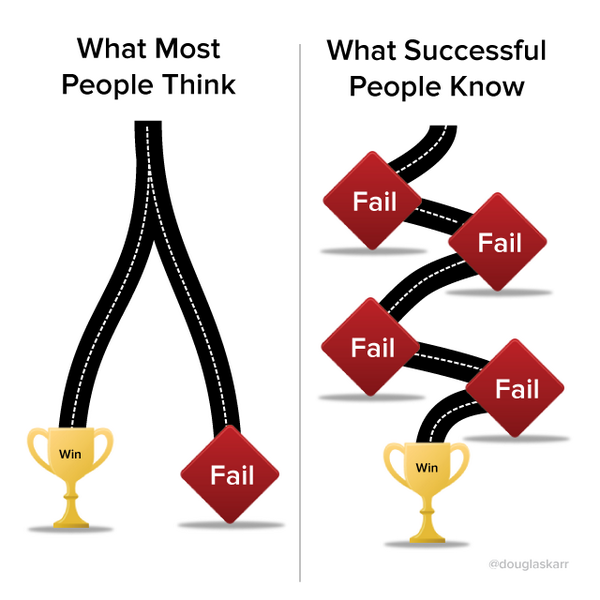
What will we talk about in this course?
Now it's time for something academic
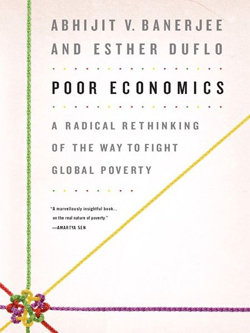
A must-read
for everyone interested in
how to eradicate poverty
in developing countries
Published in 2011
Let's hear from one of the authors (for about 5 minutes)
Let's hear from one of the authors
Discussion time
What was her main point?
Within (almost) 5 minutes, she talked about...
We never know
whether more foreign aid is necessary or it's a waste of money
But we can answer questions like
How to immunise children
Whether to distribute mosquito nets for free
How to send kids to school
by randomised control trials (RCT), just like we test new medicine
Randomised control trials (RCTs) in a nutshell

Randomised control trials (RCTs) in a nutshell

A group of people (or firms, villages, etc.)
about whom you care
(e.g. poor farmers in Kenya)
Randomised control trials (RCTs) in a nutshell

By lottery
split the group into two
The ratio of a certain type of people (e.g. women)
is more or less the same
in both groups
Randomised control trials (RCTs) in a nutshell

One group receives intervention
while the other doesn't
The difference in outcomes
can be interpreted
as the impact of intervention
That was half of what Chapter 1 is about
The other half is about the poverty trap
The recurrent theme throughout the book
Let me make a 5-min talk on the poverty trap
Motivation: The debate on foreign aid
More aid
is
needed
Aid
is
a waste
vs

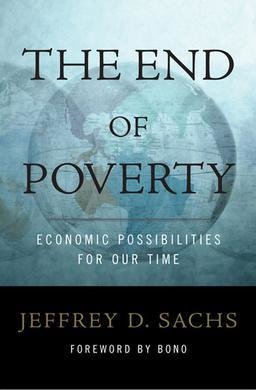

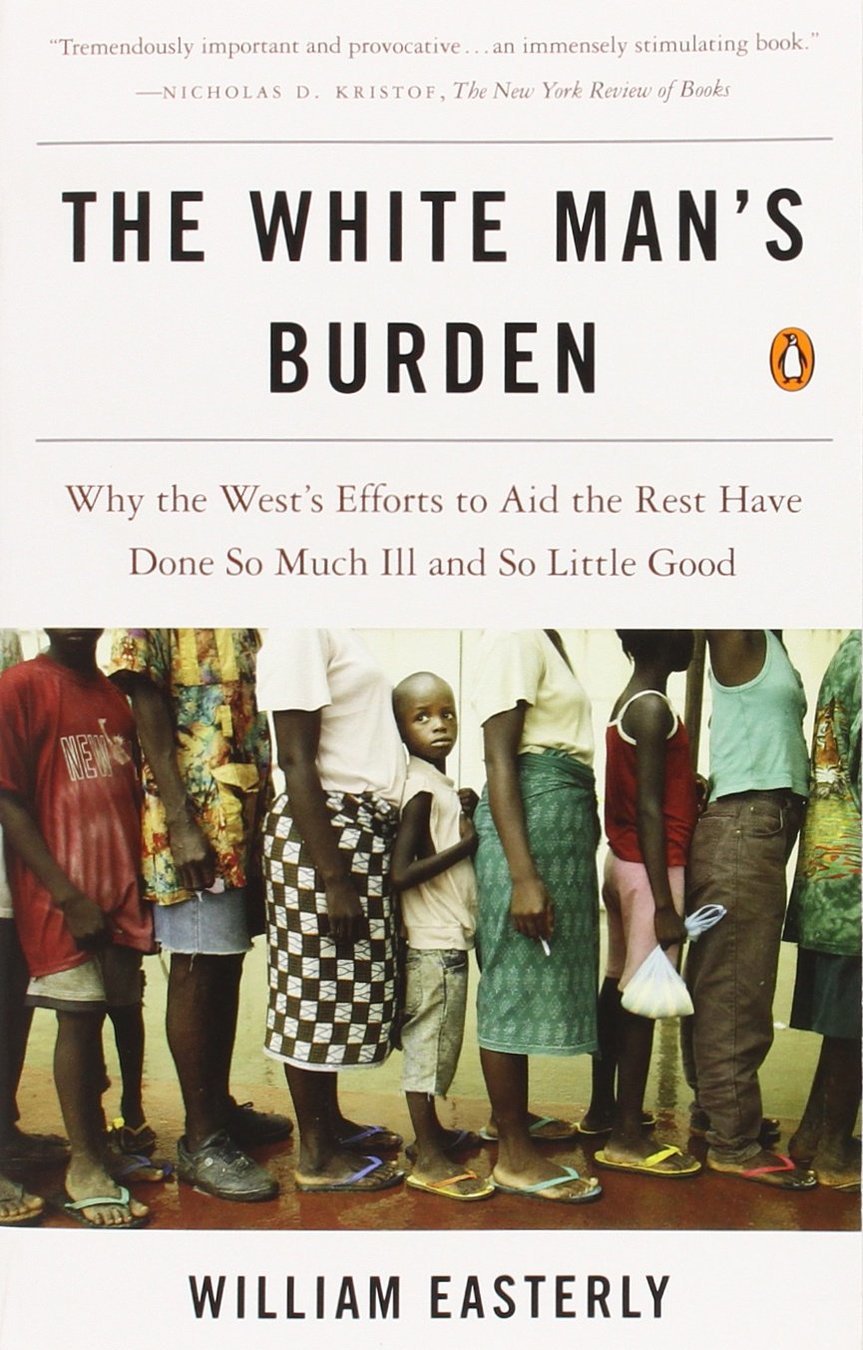
Motivation: The debate on foreign aid
More aid
is
needed
Aid
is
a waste
vs




Which side is correct?
Is it possible to get trapped in poverty?
A more fundamental question
behind this debate:
Let's diagram your income growth
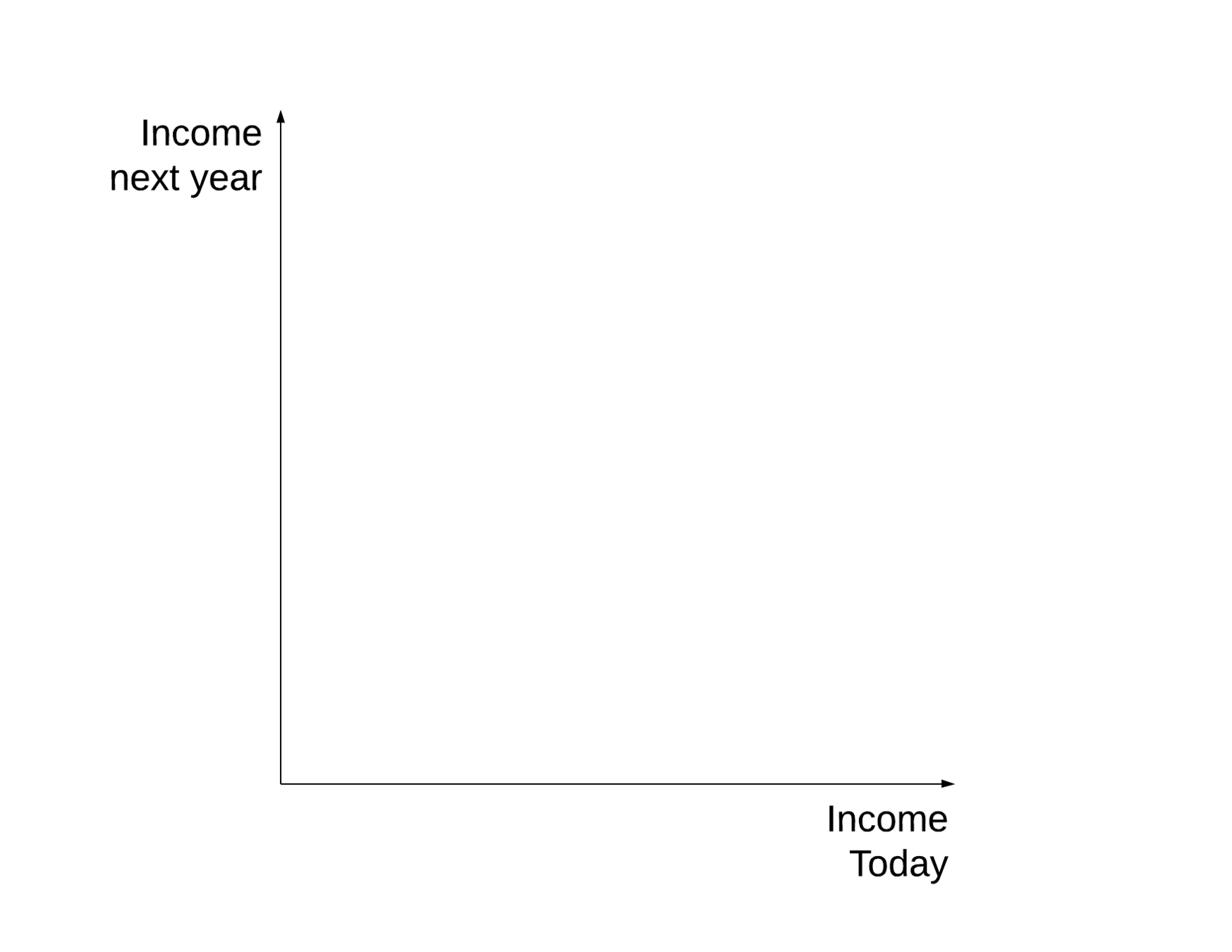
Scenario 1 S-shaped income growth
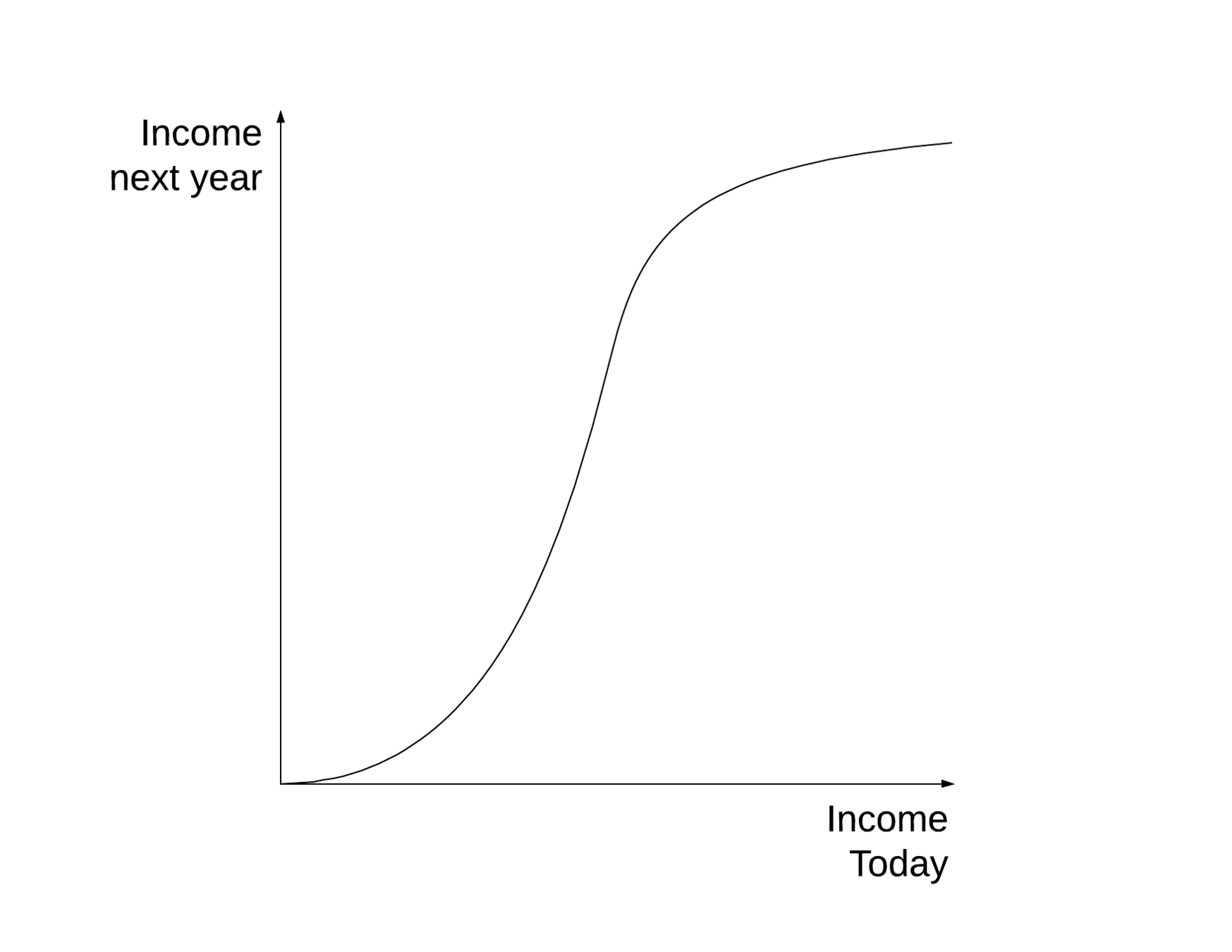
Draw the 45-degree line
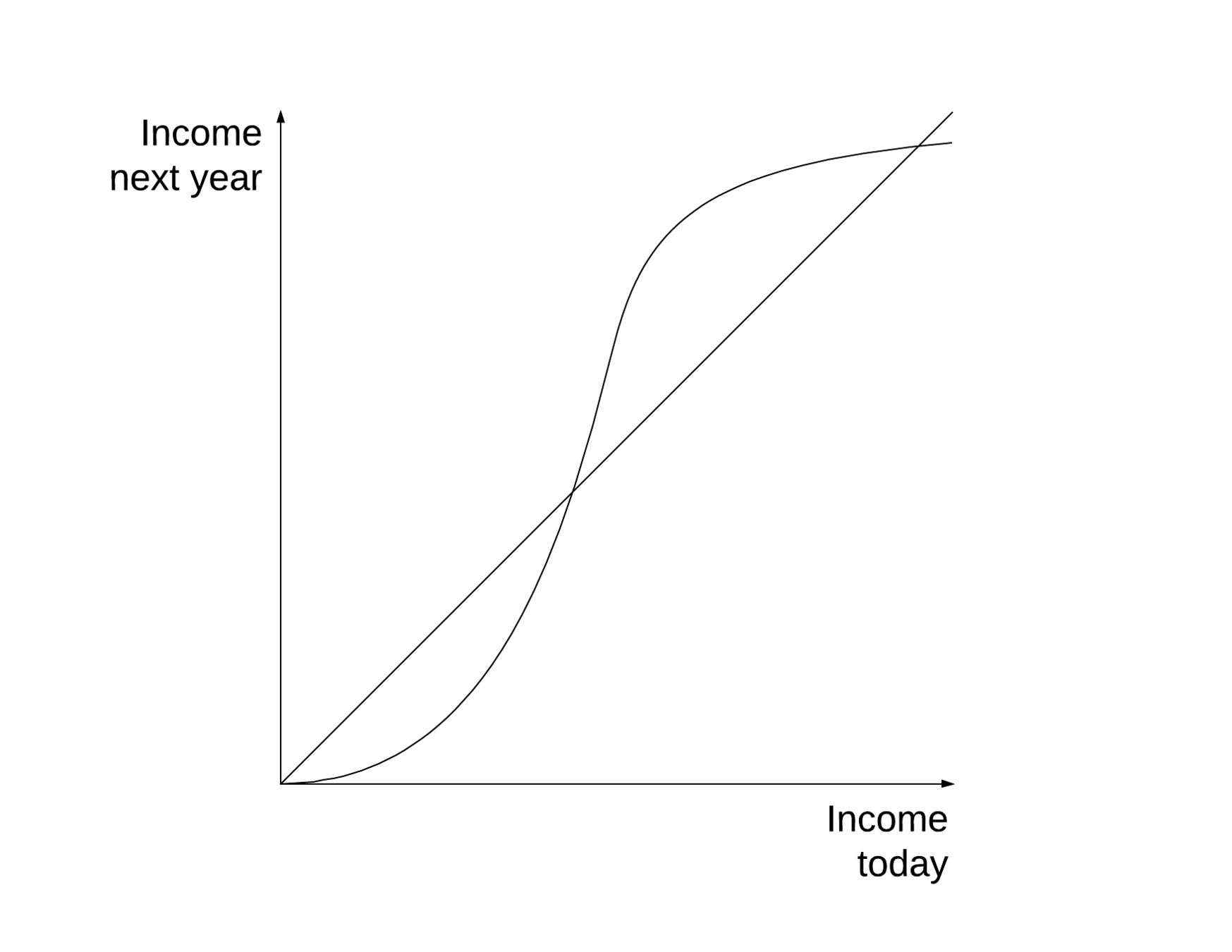
Income grows if the curve is above the line

Income drops if the curve is below the line

There is a poverty trap in this scenario

Foreign aid is needed to escape from the trap

Scenario 2 Inverted L-shaped income growth
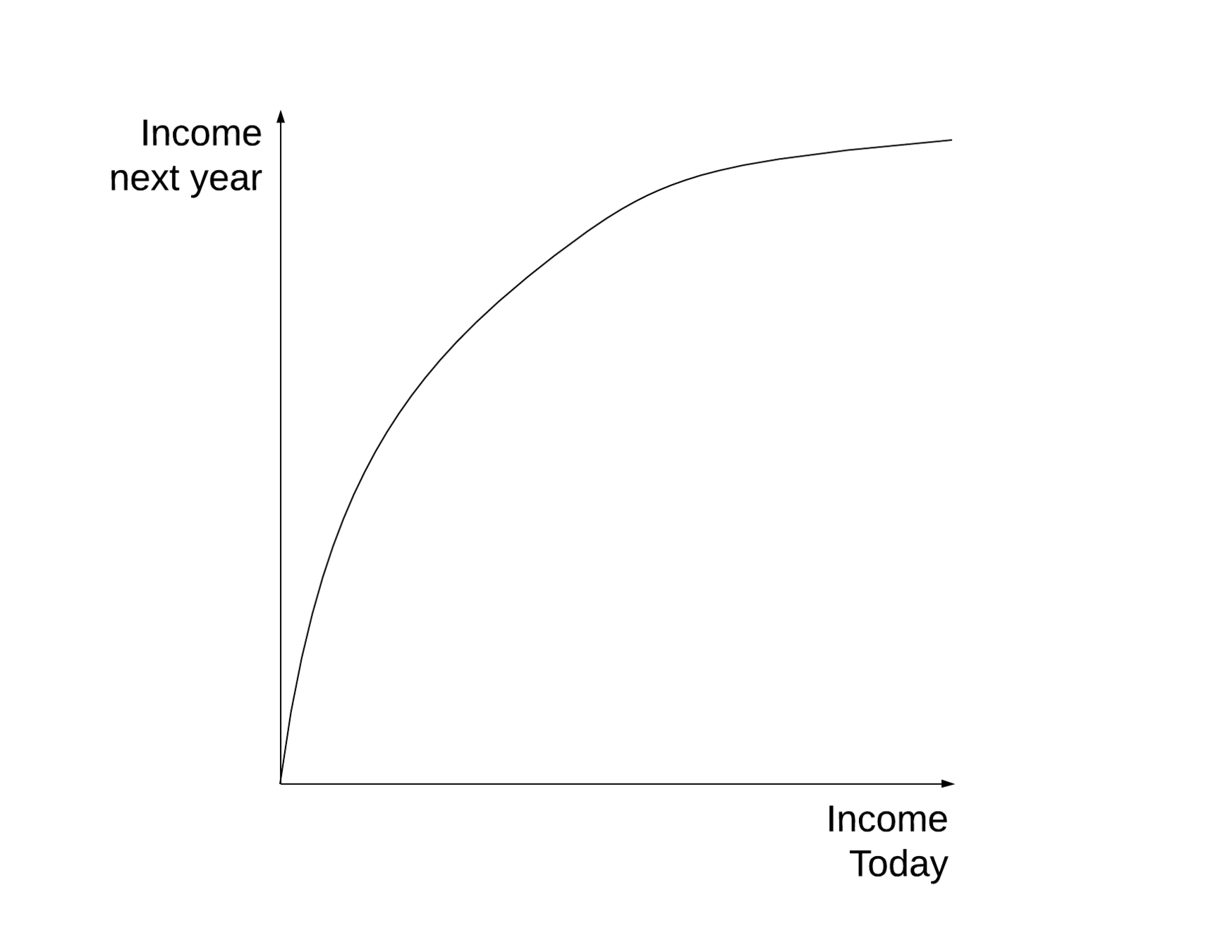
Draw the 45-degree line
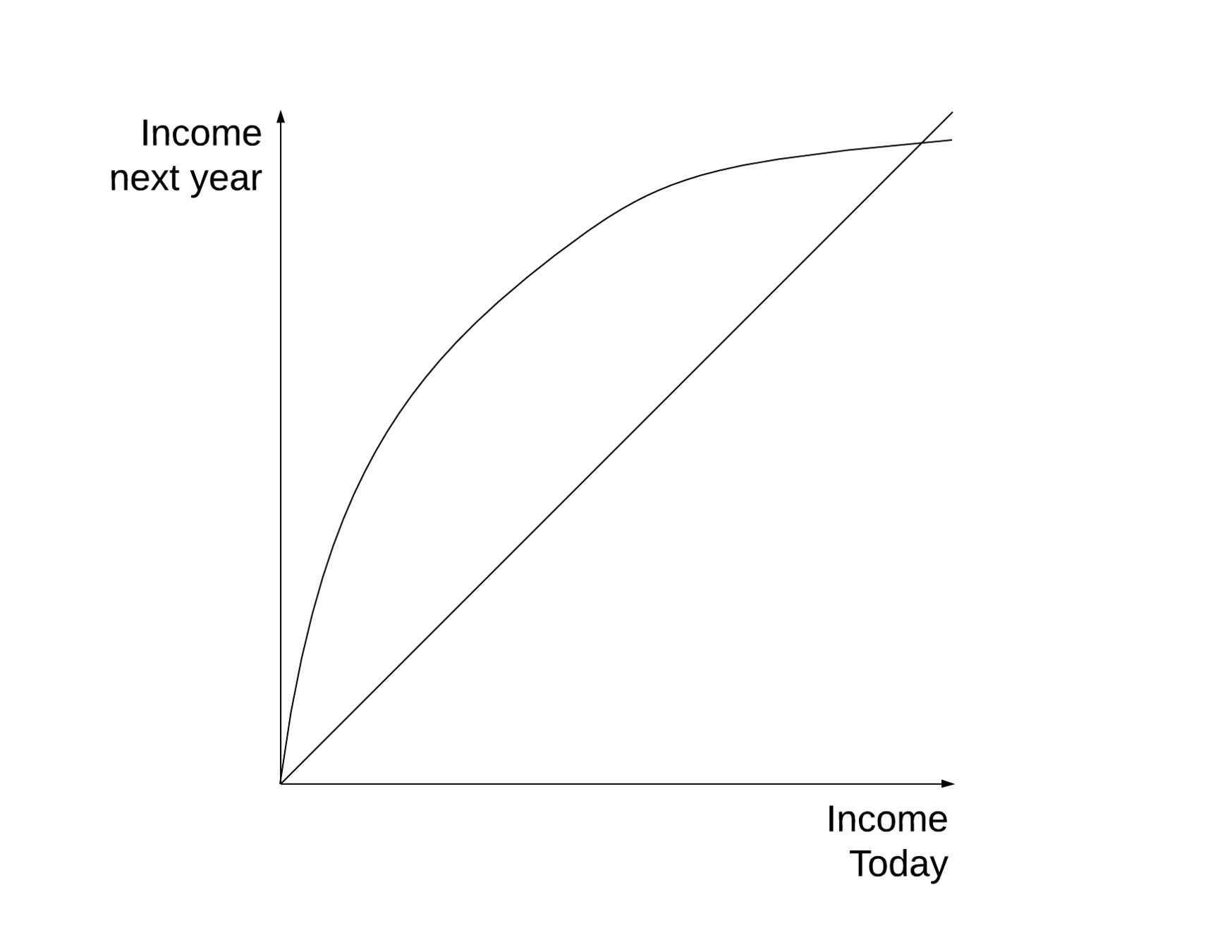

Income grows if the curve is above the line

There is no poverty trap in this scenario

No need of foreign aid
Which scenario describes the world?

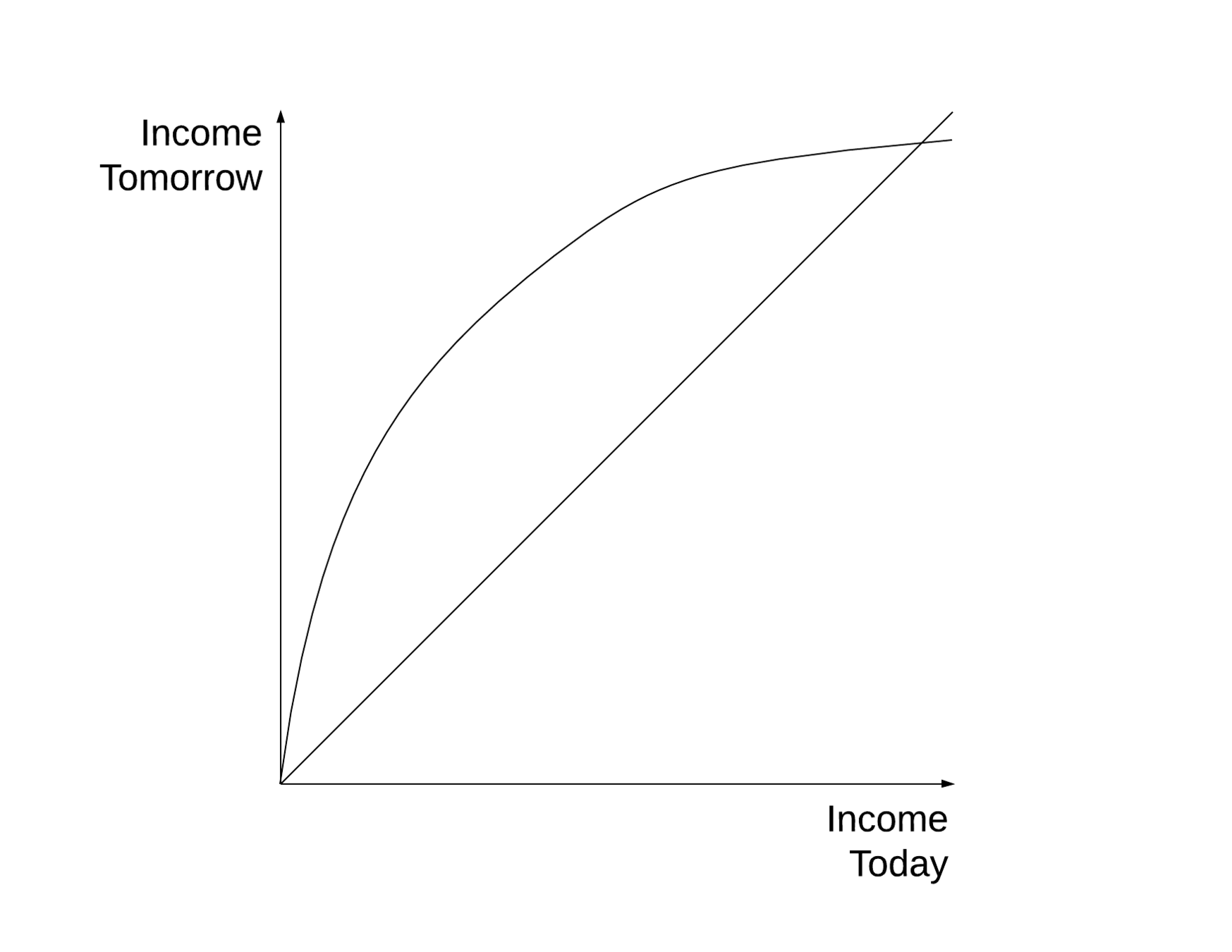
or
The book's main message
We need to figure this out case by case
Poor Economics: Table of Content
Chapter 2
Chapter 3
Chapter 4
Chapter 5
Chapter 6
Chapter 7
Chapter 8
Chapter 9
Chapter 10
Nutrition
Health
Education
Fertility
Insurance
Microfinance
Saving
Small businesses
Politics
Poor Economics: Table of Content
Chapter 2
Chapter 3
Chapter 4
Chapter 5
Chapter 6
Chapter 7
Chapter 8
Chapter 9
Chapter 10
Nutrition
Health
Education
Fertility
Insurance
Microfinance
Saving
Small businesses
Politics
Your first two 5-min talks will be
based on two of these 8 chapters
Each week covers one chapter
with each divided into 4 sections
Sign up at
First come, first served
Chapter 2
Nutrition
Are there really a billion hungry people? (22-28)
Are the poor really eating well and eating enough? (28-33)
Why do the poor eat so little? (33-38)
So is there really a nutrition-based poverty trap? (38-40)
Chapter 3
Health
THE HEALTH TRAP (43-48)
WHY AREN'T THESE TECHNOLOGIES USED MORE? (48-56)
Does Free Mean Worthless?
Faith?
Weak beliefs and the necessity of hope (57-64)
New Year's resolution
Nudging or Convincing?
THE VIEW FROM OUR COUCH (64-70)
Chapter 4
Education
Supply-demand wars / The demand wallahs' case (71-78)
The curse of expectations (86-93)
Why schools fail / Reengineering education (93-100)
The curious history of conditional cash transfer / Does top-down education policy work? / Private schools / Pratham versus private schools (78-86)
Chapter 5
Fertility
What is wrong with large families? (106-111)
Do the poor control their fertility decisions? (111-119)
Children as financial instruments (119-123)
The family (123-128)
Chapter 6
Insurance
The hazards of being poor (134-141)
The hedge (141-147)
Where are the insurance companies for the poor? (147-151)
The poor face a huge risk; the consequence of risk
How the poor diversify risk and its limitations
Why insurance companies do not operate in poor countries
Why don't poor people want insurance? (151-155)
Chapter 7
Microfinance
Lending to the poor / Micro insights for a macro program (159-168)
Does microcredit work? (166-172)
How can larger firms be financed? (178-181)
The limits of microcredit (173-181)
Do banks lend medium-sized firms?
Why do the poor pay a very high interest on their loan?
How does microfinance manage to lower it?
The impact of microfinance on the lives of the poor
Who cannot benefit from microfinance, and why?
Chapter 8
Saving
Why the poor don't save more (184-189)
The psychology of savings (190-194)
Poverty and the logic of self-control / Getting out of the trap (198-203)
Savings and self-control (194-198)
Chapter 9
Small businesses
Capitalists without capital (208-212)
The businesses of the poor
Good jobs (226-233)
Very small and unprofitable businesses /
The marginal and the average (212-223)
Entrepreneurship is too hard / Buying a job (223-226)
Chapter 10
Politics
Political economy
Changes at the margin
Decentralization and democracy in practice
Against political economy
Poor Economics: Table of Content
Chapter 2
Chapter 3
Chapter 4
Chapter 5
Chapter 6
Chapter 7
Chapter 8
Chapter 9
Chapter 10
Nutrition
Health
Education
Fertility
Insurance
Microfinance
Saving
Small businesses
Politics
The last chapter
is the authors' critique
of another important book
on economic development

Let's hear a 5-minute interview
of one of the authors about this book
Opposing views on the cause of poverty
Why Nations Fail
Politics
Poor Economics
We do not know

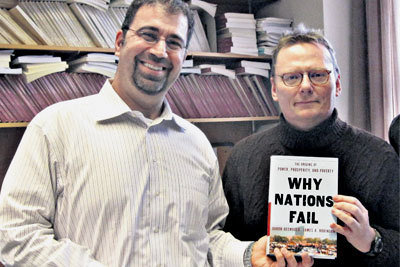
Your last 5-minute talk will be based on
Each week (from 5 December) covers 3 chapters of Why Nations Fail
Our last class (23 January) covers Poor Economics's last chapter
either one of the 15 chapters of this book
or the last chapter of Poor Economics
and we'll discuss which book is more convincing
December 5: How institutions affect prosperity
Chapter 3
Chapter 7
Chapter 8
North/South Korea
the Congo
How institutions matter for prosperity
Why did
Industrial Revolution
take place
in England?
History of England
from 13c to 19c
Extractive institutions cause poverty
Inclusive institutions lead to prosperity
Ottoman Empire
Austria-Hungary
Russian Empire
Ming/Qing dynasties
Ethiopia
Somalia
Chapter 4
Chapter 1
Chapter 10
United States
vs Mexico
from colonization
to early 20c
December 12: Origins of inclusive institutions
Western
vs Eastern Europe
after Black Death
in 14c
Spain vs England
after Rise of Atlantic
Trade in 16c
Australia
French Revolution
and its spread to
Western Europe
Japan vs China
in 19c
Chapter 13
December 19: Persistence of Extractive Institutions
Chapter 9
Chapter 12
Southeast Asia
in 17c
Slave trade in
sub-Saharan
Africa
British colonization
of South Africa
in 19c
Guatemala
Sierra Leone
Ethiopia
before/after
the 1974 coup
US South
before/after
American Civil War
Zimbabwe
Argentina
Colombia
North Korea
Uzbekistan
Chapter 6
Chapter 14
United Kingdom
in 19c
United States
in early 20c
Republic of Venice
Roman Republic
January 9: Survival of Inclusive Institutions
Botswana
US South
in the 1950s-60s
Chapter 11
Inclusive institutions can collapse
Inclusive institutions can survive
Inclusive institutions can emerge
January 16: Prosperity without Inclusive Institutions?
Soviet Union
Neolithic Revolution
Mayan city-states
Chapter 2
Chapter 5
Alternative explanations:
Geography
Culture
Ignorance
(i.e. Poor Economics)
Chapter 15
Policy implications
of this book
More on Ignorance
(i.e. Poor Economics)
The speaker pretends to be the book author
How each class will be structured (1 of 4)
You don't have to come up with your own comments
to let you focus on presentation
1. The five-minute talk
Bring a PDF copy of your slides
2. Pair discussion for 5 minutes
How each class will be structured (2 of 4)
Questions
Comments
The speaker will be given my feedback on the style of presentation
How each class will be structured (3 of 4)
3. Floor discussion for 10 minutes
The speaker has to respond to their questions or comments
as if you were the book author defending your argument
How each class will be structured (4 of 4)
We repeat these three steps (about 20-min each) for four sections
Last 10 minutes: discussions on the whole chapter
For each section, at least 3 of you will be asked to speak up
So everyone will speak up at least once during 90 minutes
Any questions?
Now the most important thing for you...
Grading policy
Grades matter for your future
Historically,
college grades do not count at all
for job hunting in Japan
Not any more!
日本経済新聞 May 16, 2018
Also, your GPA does matter for studying abroad
Grading policy
30%
Attendance (90-min exposure to English)
Get used to listening to non-native English speakers
for a long period of time
Grading policy
30%
Attendance (90-min exposure to English)
30%
Your last 5-min presentation
How to prepare for a 5-minute presentaiton
1
2
3
4
Find the main message
Motivate the main message
Support the main message
Derive implications from the main message
How to prepare for a 5-minute presentaiton
1
4
2
3
Find the main message
Motivate the main message
Support the main message
Derive implications from the main message
It's all about the main message!
How to prepare for a 5-minute presentaiton
#1 Find the main message
Summarise each paragraph
1
2
3
See which pair of paragraphs are related
Cause & Effect
Example
Chronology
Contrast
The paragraph that connects to many other paragraphs
is likely to be the main message
And you can do this sentence by sentence within a paragraph as well
Example: Paragraph on pages 12-13
Which of the two diagrams best represents the world of, say, a young Kenyan farmer?
We need to find out a set of simple facts
fertilizer
cause & effect
saving
examples
Are there poverty trap?
cause & effect
We need to assess
case by case
cause & effect
fertilizer
saving
examples
nutrition & health
Lack of universal answer
= what policy makers should want to know
How to prepare for a 5-minute presentaiton
#2 Support the main message
Logical reasons
1
2
Supporting statistics
3
Supporting anecdotes
4
Examples
How to prepare for a 5-minute presentaiton
1
2
What we should do when the main message is correct
New questions arising from the main message
#3 Derive implications from the main message
Don't make a new argument irrelevant of the main message
How to prepare for a 5-minute presentaiton
#4 Motivate the main message
1
Imagine you're asked, "Should we care?"
2
Think hard of
why the main message is important / interesting
3
Come up with your own motivation
in addition to those written in the book
First 1 minute of your talk
will be about this motivation
Presentation slide making software
Many people use Microsoft Powerpoint
But there are other alternatives (all webpage based)



or Keynote if you are a Mac user
Great for visualizing relations between slides

For visual-heavy presentation

Make a slide as a webpage

Prezi tutorial
Haiku Deck tutorial
Slides.com tutorial
to learn how to make slides
A book on presentation slide design

You can see an electronic copy by
Chapters 7 to 10
are highly recommended
If you insist on a book in Japanese,
Collaborate with your other presenters!
Arrange the meeting on, say, the day before
Practice 5-min talk and get feedback from each other
Ask each other for what you don't understand about the book
I'll sent an email invitation to the board
Register with your email address
Grading policy
30%
Attendance (90-min exposure to English)
30%
Your last 5-min presentation
40%
Make a good point in discussion
Stupid comments do not count.
Fail gracefully
How to discuss #1
Challenge the motivation
"Should we really care?"
How to discuss #2
Point out a logical jump

Confusing the correlation with the causation
Wrong examples
Change the meaning of a word in the middle of an argument
How to discuss #3
Suggest other reasons for the main message
How to discuss #4
Suggest other implications of the main message
Chapter 2
Nutrition
Are there really a billion hungry people? (22-28)
Are the poor really eating well and eating enough? (28-33)
Why do the poor eat so little? (33-38)
So is there really a nutrition-based poverty trap? (38-40)
So who will present next week?
Your to-do list until next class
1
2
3
Choose two chapters you wish to give a 5-min talk about
and sign up at https://doodle.com/poll/n4yxdint7itu4vur
Read Chapter 2 of Poor Economics
and take note of whatever thought occurs to you
For those giving 5-min talks, practice at least 3 times!
and prepare a PDF copy of your slides
Appendix
How to improve your oral communication skills in English
Lessons from research in Second Language Acquisition
Dictionaries
Speech Shadowing
Learn English in the Philippines
Travel guide for Japan in English
Lessons from Second Language Aquisition

1. Listen and read A LOT
to learn what expressions are natural in English
e.g. English speakers never say "Brothers of my parents are four."
2. Necessity to speak/write in English
Just watching TV in English does not help
Dictionaries I recommend
Collins COBUILD Advanced English Dictionary (free online)
Each word/phrase is defined
as if a native speaker is explaining it to you
e.g.
Definition of plateau as a verb
If something such as an activity, process, or cost plateaus or plateaus out, it reaches a stage where there is no further change or development.
Urban dictionary (free online)
For slangs
Travel guide for Japan in English
Easy to learn English expressions
when you are familiar with what's being explained in English
Learn how to explain what's unique in Japan to foreign visitors
Speech shadowing
First, repeat a native speaker's speech line by line
Speech shadowing
Second, repeat a native speaker's speech without stopping
Speech shadowing
Find an audio / video (with subtitles or its transcript)
in which a native speaker talks
TV programs such as South Park (and its unofficial transcripts)
Examples
Speech shadowing
Do it every morning from tomorrow
By the end of this course, you'll speak more fluently
Then I'll give you 25 points for your grade
Learn English in the Philippines
Cheap,
Close,
And they speak English better than the average Japanese
An interview of Miho Eto, who studied in Cebu for two weeks
Project Seminar in English: Class 1
By Masayuki Kudamatsu
Project Seminar in English: Class 1
The introduction to a mandatory course for the second-year undergraduate students at the Department of International Public Policy, Osaka University, where students are expected to improve their oral communication skills in English in an academic setting.
- 2,139



